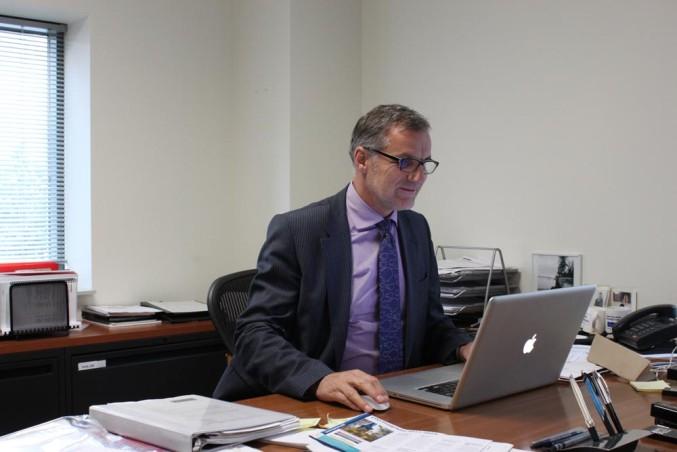By Rhiannon Russell
Ryerson Senate approved a new undergraduate program in the faculty of communication and design (FCAD) last Tuesday.
The creative industries program will give students the chance to study both creative and business courses including design, film, communication studies, publishing, event marketing, entrepreneurship and finance management.
The program is projected to launch in September 2013, but must first be approved by the Ontario Universities Council on Quality Assurance. Graduates would receive a bachelor of arts in creative industries.
“We are pretty confident [it will be approved] because of the uniqueness of the program and because of its singularity — it’s the only one in Canada,” said Gerd Hauck, the dean of FCAD.
By studying theoretical concepts and gaining practical skills, Hauck says the program will prepare students for an ever-evolving job market in which you are your brand.
“In the old days, you’d have people on the one hand — the fashion people, the designers — and then you’d have the people who managed all of that,” he said. “That chasm should be bridged.”
The Senate agenda states that potential careers for graduates include media, entertainment, performance, advertising and policy or government organizations.
Alan Kearns, head coach at Career Joy, a career coaching company, said that programs like this are important to keep education relevant in today’s job market.
“The DNA of Ryerson is to get people job-ready,” he said. “[Universities] need to be able to provide a program that is as flexible as innovative.”
With annual budget cuts, the university is trying to find new ways to bring in revenue and Hauck said this is a way to increase base funding from the government.
FCAD is one of the most expensive faculties to run due to the small class sizes necessary for labs and technical instruction.
The school also pays millions to renew software licenses and keep technology up to date.
“Money is scarcer and scarcer as it is,” Hauck said. “We have to come up with other ways of generating funds, and that program is going to put the lifeblood back into FCAD.”
Classes will be lecture and seminar based to bring in more students and take up less physical space by using large lecture halls.
The projected intake for the program’s first year is 100 students.
It has not been decided where these students will study, but Hauck said space will open up on campus once a health services building is built for the faculty of community services.
As for the projected courses, Hauck compares them to Lego pieces.
“It’s modular, which means that there are a series of six courses that you can put together in a number of different ways,” he said.
Students in other FCAD programs will also have the chance to take these courses, as well as minor in creative industries.
“It broadens the range of courses you can take, and I think it prepares you better for a career once you graduate,” said Hauck.










Leave a Reply